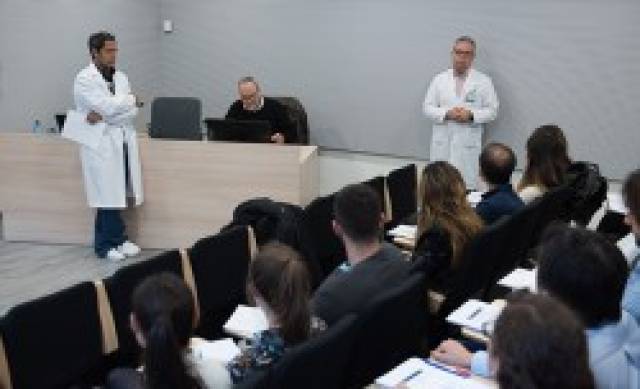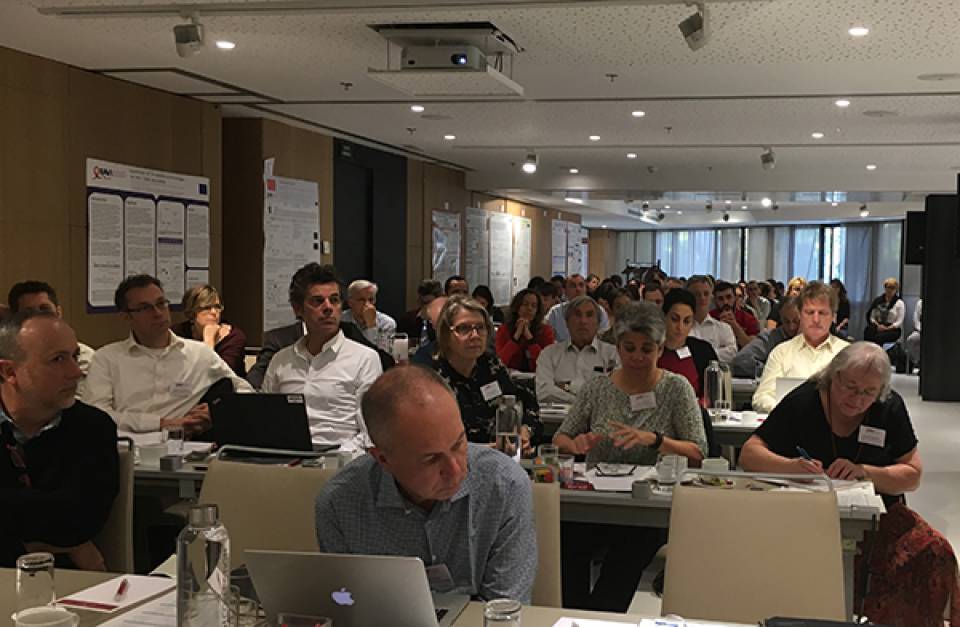The EAVI2020 initiative brings together a multidisciplinary team of molecular biologists, immunologists, virologists, biotechnologists and physicians, providing the breadth of knowledge necessary to translate, through preclinical trials and production scaling, the latest laboratory discoveries to the first clinical trials.
The meeting in Barcelona will be the second meeting of this "accelerator" vaccine program and will focus on pan-European efforts to boost the development of effective vaccines against HIV. The project aims to obtain a candidate compound for a clinical trial in the next 4 years.

Sessions on Community Engagement and Vaccine Training
As part of the event, the consortium has organized a special session focusing on the importance of the community input to vaccine research. The HIV / AIDS Community Advisory Committee, which includes community representatives and local NGOs, the Global HIV Vaccine Enterprise and the HIV Vaccine Coalition Will lead the debate on the importance of the engagement of the groups involved.
First year of the EAVI consortium
Dr. Joan Joseph, a member of the consortium's executive committee and researcher at the Infectious diseases and AIDS IDIBAPS team, led by Dr. Josep M. Gatell, coordinates the part of the project that is developed in the IDIBAPS over 5 years. His research focuses on the preclinical development of a potential HIV-Tuberculosis preventive vaccine vectored by BCG (Bacillus Calmette-Guérin), which is the tuberculosis vaccine. The recombinant BCG based HIV vaccine is expressing the T-cell immunogen designed by HIVACAT and the HIVconsv1 and HIVconsv2 immunogens engineered by Oxford University.
From IrsiCaixa, the institute led by Dr. Bonaventura Clotet, the project is coordinated by Dr. Christian Brander, head of the group of Cellular immunity and genetics of the guest and member of the consortium's executive committee. His team is actively involved in preclinical and clinical trials that will test different vaccine candidates for their preventive and therapeutic use. His contribution is based on the previous work done in the framework of HIVACAT and with the support of the Gloria Soler Foundation. The project provides for clinical trials of a therapeutic vaccine in people with HIV infection using various vectors, including DNA, MVA and Chimpanzee Adenovirus.
The other Spanish participant in the consortium is the Institute of Health Carlos III, which has one of the evaluation platforms for vaccine prototypes that will be tested first in animal models and later in clinical trials. Specifically, the Unit for Immunopathology of AIDS of the National Center of Microbiology led by Dr. José Alcamí has established an automated platform to evaluate neutralizing antibody titres in patient samples. In addition, the unit, integrated in the Research and Reference laboratory in Retroviruses, participates in the development of new prototypes of vaccines based on HIV surface proteins.

